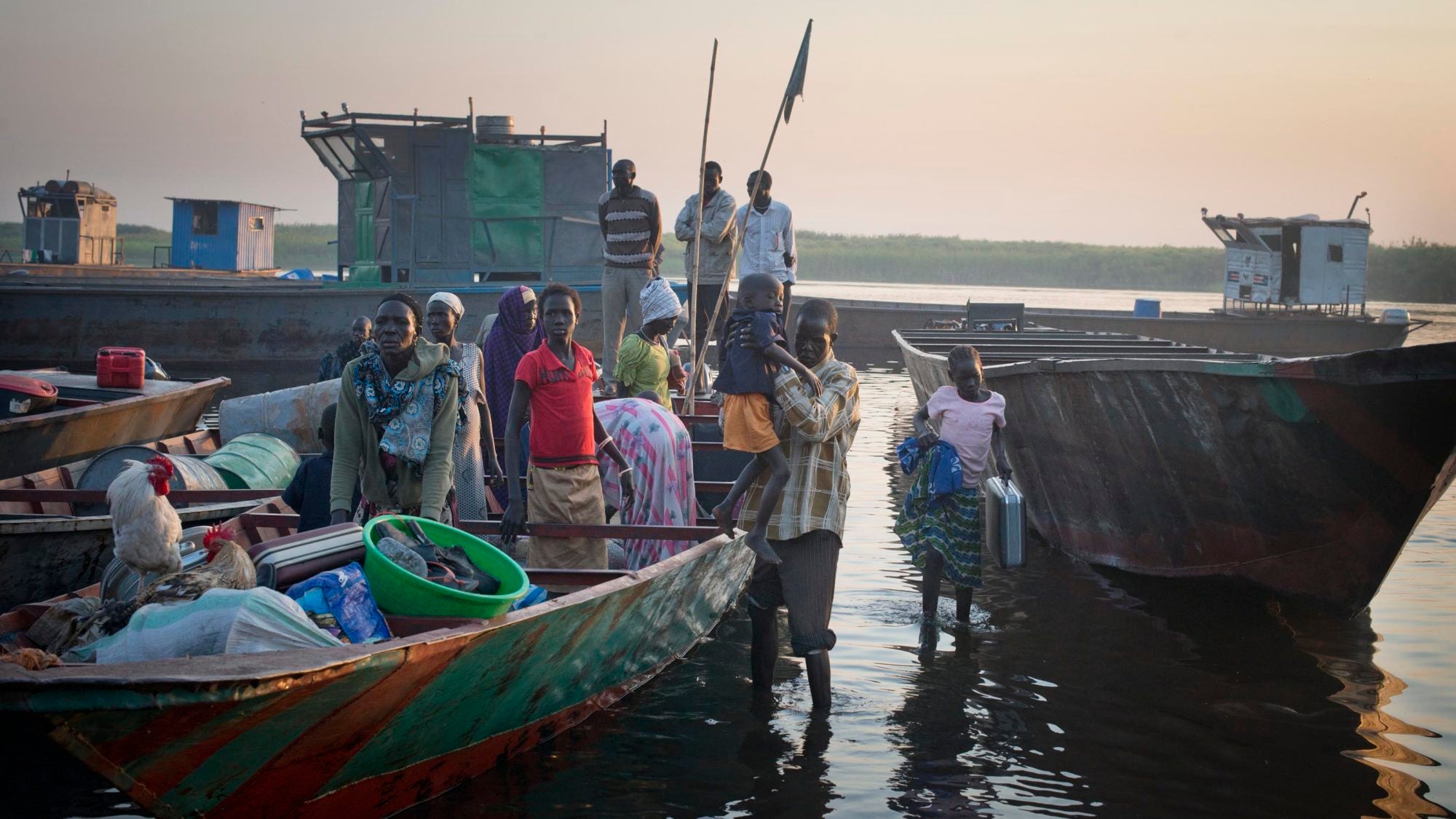
Title: Dr. Luka Kuol on Postconflict Reconstruction in South Sudan
On February 12, the World Bank Group welcomed Dr. Luka Kuol, Professor of Practice for Security Studies at the Africa Center for Strategic Studies and a former Minister of Presidential Affairs for the Government of South Sudan, for the launch of “Paths Between Peace and Public Service” and a discussion of the World Bank’s approach to rebuilding public services in postconflict countries. Following the event, Dialogues sat down with Dr. Kuol to discuss postconflict reconstruction efforts in South Sudan.
GJIA: Which sectors of the South Sudanese economy do you think have been the most affected by the conflict, and which sectors do you think are poised to be leaders in the reconstruction efforts?
LK: I think the sector most negatively affected, even though usually it’s untouchable, is the security sector. In post-conflict efforts, the security sector tends to consume most of the resources, while at the same time it is most likely not representative of the entire community. Those individuals who were fighting and had a share in the government eventually created the so-called “gun class,” which was those who ran the affairs of the country. The problem with the gun class is that they have exclusive entitlements to power and resources, and they tend to affect the whole economy by draining and drowning out the other sectors. I do find it positive, however, that there are now efforts to transform the security sector, so not only will it become inclusive and reflect the diversity of South Sudan, but also there will be more of a balance between security developments and governance.
In its efforts to build the capacity of the political institutions that were damaged during the conflict, what specifically should South Sudan focus on in order to achieve and maintain long-lasting peace?
One of the things that I want to highlight is the assumption people make in the post-conflict environment that everything is gone and we are starting from scratch. To me, that assumption undermines the resilience of the administration and undercuts its ability to repair already existing institutions. Even during the conflict, a number of informal institutions existed which I think are still very important. This is the starting point we should work from, beginning with what already exists and building incrementally from there. In my experience, people tend to envision building huge structures for a Western-style government, which doesn’t fit with our actual low capacity. I am someone who believes in an incremental approach to government – I believe the goal should be a simple, small government that matched the state’s existing capacity, and which can be built up over time. The problem in South Sudan and in many post-conflict environments is that conflict has caused a huge disruption which limits capacity, and which in turn leads to a lot of disappointment and further mismanagement. I am not saying that mine is the only approach, but I do believe that incremental capacity building would be effective in this case.
What role has civil society played in South Sudan before, during, and after its civil war?
One of the positive things to come out of war has been the emergence of civil society, including the church, which has become an important pillar of society. There is absolutely a role for civil society to play in the post-conflict environment. During the first civil war, we conducted a Joint Assessment Mission, and realized that civil society was engaged but not effectively. This time, I think it’s becoming extremely important, as this is the only sector that really reflects the views of the citizenry and is devoid of political opinions. It is a very important group of people for South Sudan.
Where do you think South Sudan will be in the next ten to twenty years?
I think we will have a very bumpy path to reconstruction. One key problem with the peace agreement that was recently signed is that there is not any clear sense of political will or leadership. This has been the case in many other countries I’ve worked on as well. What I see now is leadership focusing on patronage, without a very clear vision. The dynamics of peace need to be changed in South Sudan in order to encourage more visionary leaders. The war has already cost so much to everyone here. Having political leadership with a vision is key to the future of South Sudan, but as I see it now, our path will be bumpy.
. . .
Dr. Luka Kuol is a Professor of Practice for Security Studies at the Africa Center for Strategic Studies at the U.S. National Defense University. He is also Associate Professor of Economics at the University of Juba in South Sudan, a Global Fellow at Peace Research Institute Oslo in Norway, and the South Sudan Alumni Ambassador of the Institute of Development Studies in the United Kingdom. He previously served as Minister of Presidential Affairs for the Government of South Sudan, and as National Minister of Cabinet Affairs for the Republic of Sudan until his resignation in 2011. Dr. Kuol received his BSc with honors from the Faculty of Economics and Social Studies at the University of Khartoum, along with an M.B.A. and an M.A. in Economics from the Catholic University of Leuven. He holds a Ph.D. from the Institute of Development Studies at the University of Sussex.